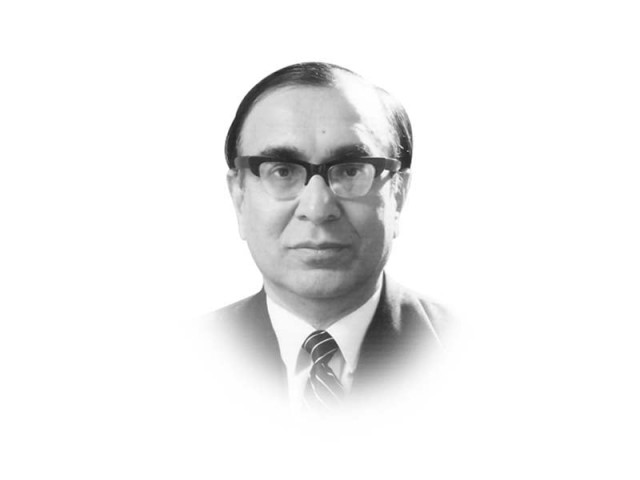Karzai‘s great gamble
As his options in his own country diminish, President Karzai seems to be inclined to gamble.

The agreement on strategic partnership that Karzai signed with Indian Prime Minister Manmohan Singh on October 4, invokes the Treaty of Friendship that Kabul entered into with New Delhi more than 61 years ago. India was then a poor country and, in actual practice, used the ingress provided by that treaty mostly to fan the anti-Pakistan Pashtunistan movement. By the mid-1950s, the Soviet Union had arrived with projects to train and equip a considerably expanded Afghan military, an event that inexorably led to the ‘Saur Revolution’ and the 30 year conflict. India played the second fiddle at the time, just as it has tried in the last few years to piggy-back on the Americans, to position itself as a major actor in shaping Afghanistan’s future.
India has today, the economic resources to provide tangible assistance for the rehabilitation of Afghanistan’s shattered infrastructure, education and health. That this assistance is not entirely altruistic and has an underlying dimension of strategic planning could be seen in projects like the Delaram road, the preoccupation with Northern provinces and the proliferation of offices that camouflage a growing intelligence capability. India has now unabashedly used economic cooperation as the thin end of the wedge to get involved with the Afghan security forces. This problematic development has followed the ‘operationalising’ of an Indian airbase in Tajikistan.
The rationale for greater bilateral and multilateral economic cooperation set out in the new Strategic Pact reflects progressive thinking. Pakistan’s own trade with Afghanistan has a much larger turn over than what gets recorded at Torkham and Chaman, because of scores of other inlets/outlets used for the flow of goods. Given this advantage, Pakistan should not fear Indian competition. The Pact’s hope for Afghanistan to ‘emerge as a trade, transportation and energy hub connecting Central and South Asia’ depends considerably on Pakistan being an essential part of that visionary highway of the commerce of nations. India’s plunge into the conflicted security situation in Afghanistan is, however, not only unconscionable but militates against this envisioned economic architecture. New Delhi does not want the winding down of the western military effort against the Taliban. This factor alone will make the Indian security intervention highly controversial.
What are its aspects that Pakistan should fear? First and foremost, India is weighing in to support security plans that strengthen the grip of the erstwhile ‘Northern Alliance’ on the Afghan National Army, paramilitary forces and intelligence outfits. This will exacerbate the north-south tensions, prolong the conflict, and act as a factor of instability on both sides of the Durand line. Secondly, it is most unlikely that the hugely funded Indian intelligence services desist from using the enhanced Indian presence in Afghanistan to Pakistan’s detriment. This will inevitably become an irritant in Islamabad’s bilateral relations, both, with Kabul and New Delhi.
As his options in his own country diminish, President Karzai seems to be inclined to gamble. Reacting to the tragic assassination of Burhanuddin Rabbani, he publicly despaired of further contacts with the Taliban. On the eve of his visit to New Delhi, his office issued reckless anti-Pakistan statements. In New Delhi, he tried to limit damage by describing Pakistan as a brother. Karzai’s ambassador in Islamabad visited the Pakistan foreign Office as well as General Kayani. This is rather disingenuous. Pakistan’s best option is to candidly share with President Karzai its own forthright assessment of the perils inherent in opening its security structures to yet another power in quest of a well defined zone of influence. It should be accompanied by readiness to participate in any viable project of multilateral economic cooperation as a trade off with dangerous militaristic plans.
Published in The Express Tribune, October 10th, 2011.














COMMENTS
Comments are moderated and generally will be posted if they are on-topic and not abusive.
For more information, please see our Comments FAQ